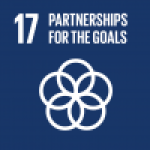1 June 2021, New York – The European Union has announced EUR 10 million for the United Nations Development Programme (UNDP)-led Adaptation Fund Climate Innovation Accelerator.
The funding builds on a multi-partner project, the ‘Adaptation Fund Climate Innovation Accelerator,’ launched in November 2020 with an initial US$10 million grant from the Adaptation Fund, and will support local entrepreneurs in developing countries to grow their innovative resilience-building solutions into viable business model that attract commercial financing.
UNDP will blend comparative strengths of the two partners in the project – UN Environment and the Climate Technology Centre and Network – and provide not only grant funding for incubating ideas but also capacity-building in business skills, technical support, and advocacy support.
“Emerging from the multiple extreme weather disasters and the COVID-19 pandemic last year, we heard a great many stories of grassroots resilience, proactiveness and solidarity – these were both inspiring and instructive, casting a light on the role of local people in responding to immediate crises,” said Haoliang Xu, Assistant Administrator and Director of the Bureau for Policy and Programme Support, UNDP. “With this in mind, and with the support from the EU and the Adaptation Fund, we hope to make innovation, finance and technical support much more accessible to local stakeholders, placing them at the heart of our work to climate change resilience.”
Many vulnerable local communities have not adequately benefited from the tremendous progress made at global and national levels in climate change governance architecture, adaptation financing and technology transfer. This is partly because local communities largely remain at the receiving end of solutions and are not effectively involved in designing their own futures.
At the same time, the need for adaptation continues to grow as climate change impacts become more prominent, and the imperative to scale tested solutions is increasingly paramount.
While local entrepreneurs, non-government organizations and civil society organizations often have innovative, home-grown ideas for resilience-building, with their typical business acumen and financial standing they are often far from the level of readiness typically required by now-proliferating impact accelerators, social innovation funds, and social incubators.
This is this space that the Adaptation Fund Climate Innovation Accelerator is intended to fill.
The Adaptation Innovation Marketplace
Consensus on the need to accelerate locally led adaptation emerged at the back-to-back Gobeshona Conference and Climate Adaptation Summit in January this year.
The Adaptation Innovation Marketplace (AIM) was launched by UNDP Administrator Achim Steiner at the latter. It is a symbolic yet strategic initiative that promotes scaled-up adaptation at the local level, focusing on civil society, non-government organizations, and women and youth innovators. The marketplace crowds in resources, know-how and support to facilitate local access to climate change finance.
The AIM platform is made possible through UNDP’s partnerships with the International Centre for Climate Change and Development, the Least Developed Countries Universities Consortium on Climate Change, the Global Resilience Partnership, the Climate-Knowledge Innovation Community, and World Resources Institute.
The Adaptation Fund Climate Innovation Accelerator is integrated within the AIM and will benefit from knowledge management and sharing, global partnerships and investment brokering services that the AIM offers.
Accelerating action
UNDP actively supports over US$1 billion in climate resilience investments from donors such as the Green Climate Fund, the Global Environment Facility and the Adaptation Fund, as well as bilateral and multilateral partners including the European Union. The projects span close to 100 countries, including 43 least developed countries and 14 small island developing states, and have supported more than 19 million people in building more resilient lives and livelihoods.


